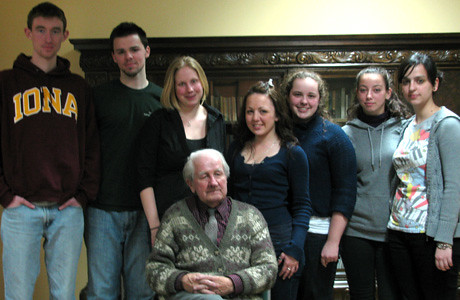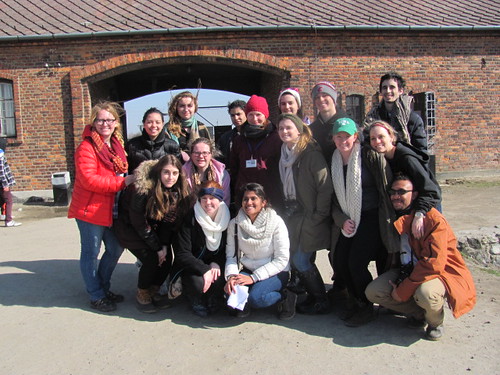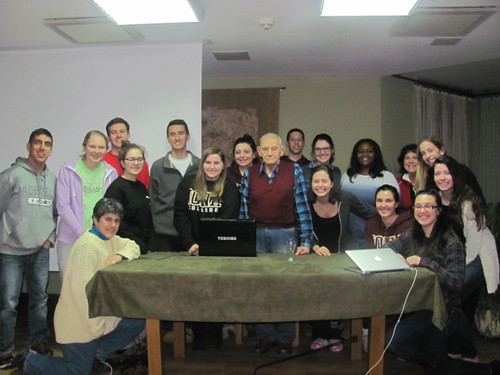After the trip, I wrote only one brief post on social media
about the trip. It was minimal, because at that point I had barely processed
what had happened. This experience wasn’t exactly a like a comment kind of
experience. I want to elaborate here now.
Auschwitz-Birkenau is completely and utterly empty. It is
just a vast expanse of nothing. As we walked through, I heard sounds of birds
chirping, bugs buzzing around; the sounds of an empty and peaceful forest. That
was disconcerting, how completely peaceful it was. We were told to remember
what it would have been, the ground trampled with constant footsteps, loudness
and shouts, and probably the coughing sounds of fatigue and disease. 1.3
million people went through the camp. It was almost impossible to imagine that
the way it was; there weren’t even many other visitors around us when we were
there.
 |
| Railcar at Auschwitz-Birkenau |
When we stood by the railcars, where people were selected, I
had to sit down. The feeling of the place is oppressive. Most people were
selected then to immediately go to the gas chambers, and never entered the camp
proper. It is impossible to feel what they felt or truly understand the
tragedy, it is impossible not to feel the tragedy.
The day I made the post was Ostara, a neopagan holiday of
the spring equinox. It is about the return of growth and life after the death
of winter, new life springing up in a cold world. When we were there, every
time someone had a hard time, every time someone was overwhelmed in the place,
there was someone there for them. There were people there, and certainly some
of them were relatives of survivors, a new generation from those left of a
tragedy. There were groups of Israelis visiting when we were. Life moves on,
communities regrow. People are good.
It was deeply disconcerting and uncomfortable to find the
place sometimes pleasant, a nice outdoor area with birds and wildlife and
peacefulness, but the fact of the matter is that that is the cycle of life, of
the world, and that it may feel wrong, but it is also good.



















